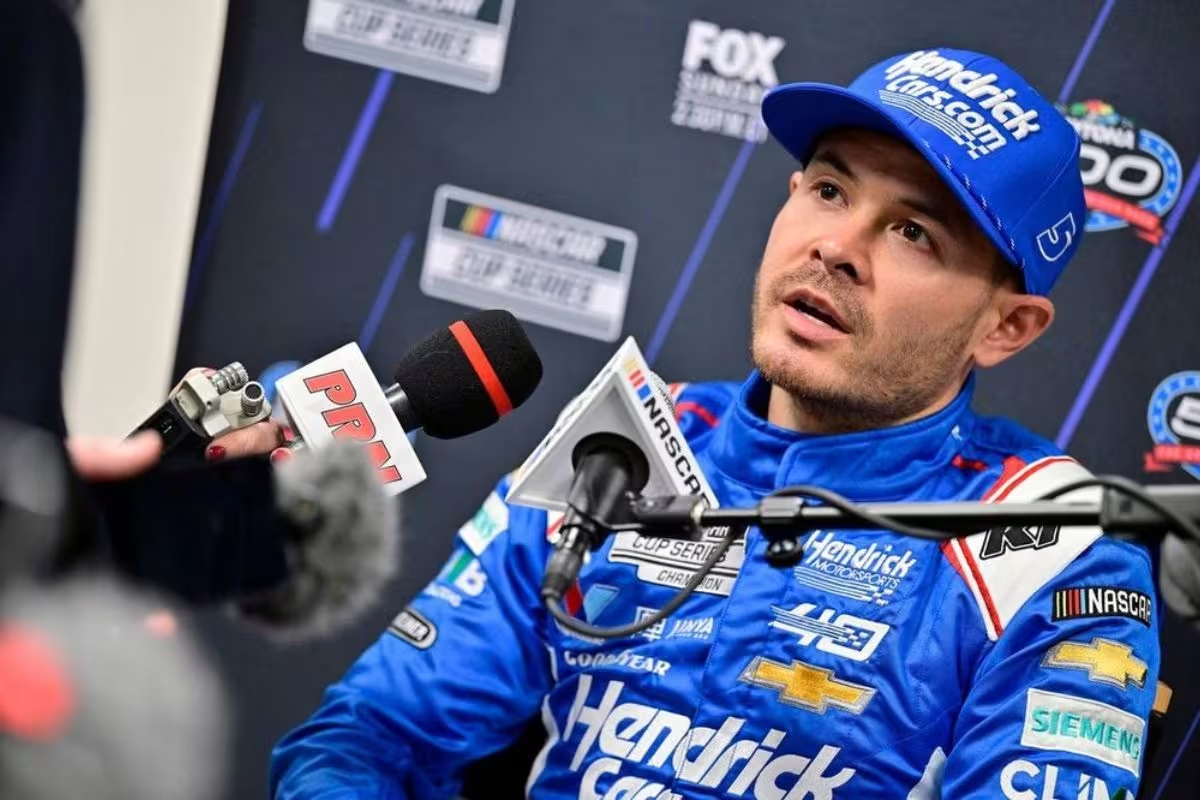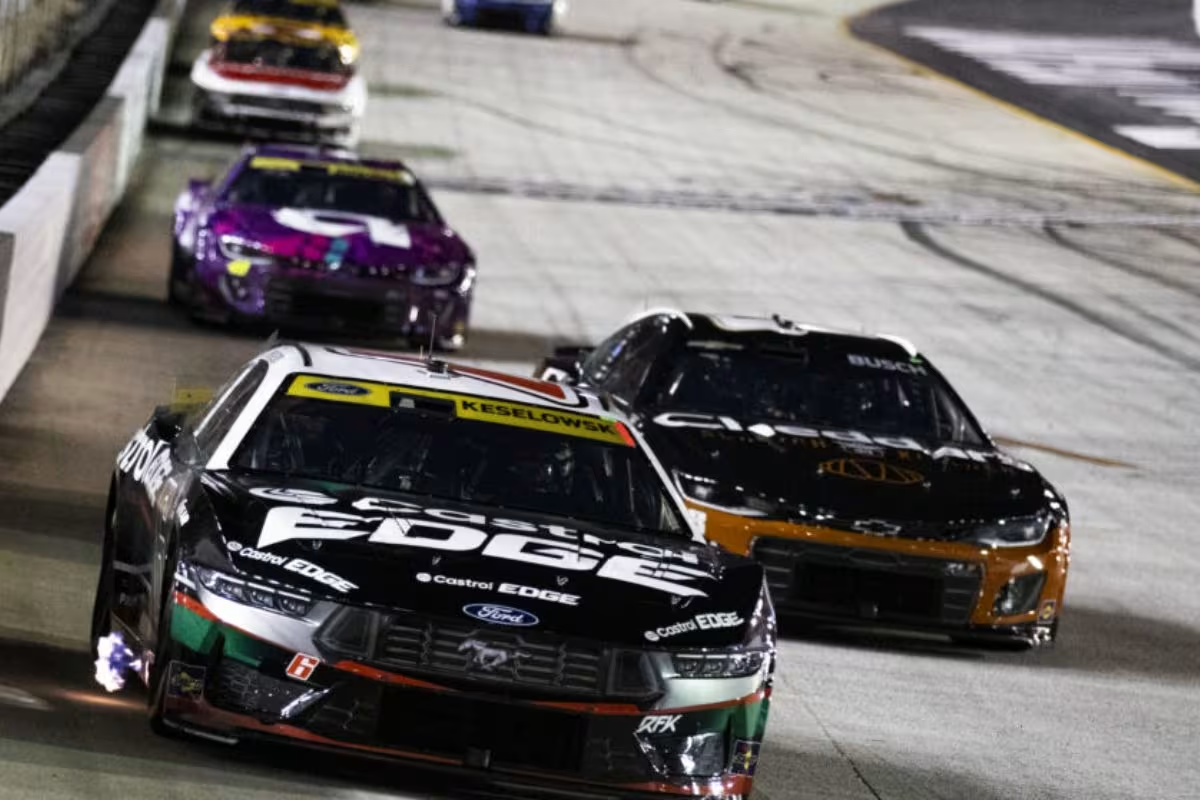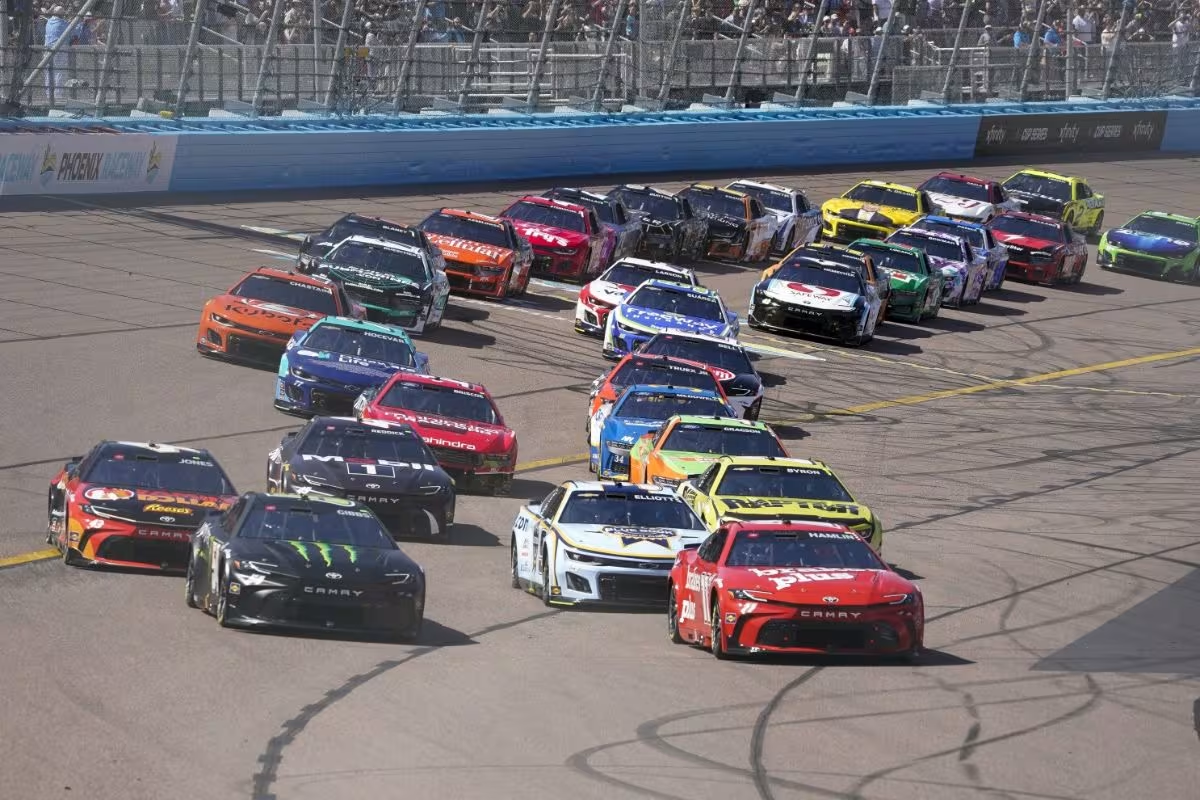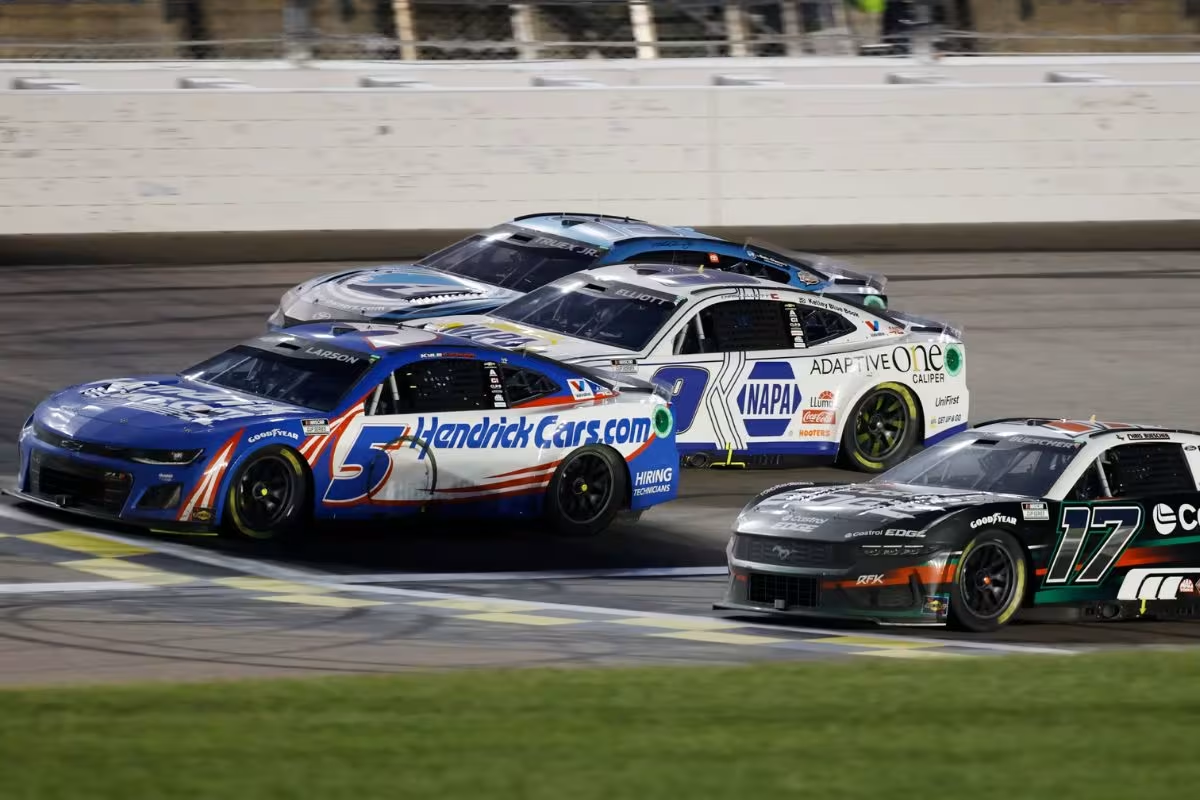Kyle Larson Comes Out Against NASCAR: NASCAR has always been about passion and competition, but hidden behind the scenes are serious issues about money and fairness. As teams like 23XI Racing and Front Row Motorsports take legal action against NASCAR, questions arise about how profits are shared among everyone involved. Kyle Larson has stepped up, calling for major changes to help improve financial conditions for all teams. What does this mean for the future of NASCAR?
Key Highlights
- Kyle Larson advocates for NASCAR to provide better financial support and pay structures for teams, aligning with Michael Jordan’s vision for equitable growth.
- He supports increased competition by allowing teams to participate in various series, challenging the current restrictive environment in NASCAR.
- Larson stresses the importance of honest vendor relationships to reduce financial strain on teams and create a fairer business model.
- His call for collective bargaining represents a challenge to the status quo, seeking better terms for teams in negotiations with NASCAR.
- Larson’s backing of Jordan’s vision highlights a growing push for reform within NASCAR, addressing long-standing financial and competitive disparities.
NASCAR’s Business Dynamics and Legal Challenge
NASCAR has always been a sport fueled by passion, but as it has become more profitable, it has also revealed big differences in how money is shared. The France family, who has led NASCAR for a long time, takes a larger portion of the money made from sponsorships and media rights, which creates a feeling of unfairness among other stakeholders.
This situation is now being looked at closely because 23XI Racing and Front Row Motorsports have started a legal case against NASCAR. Their lawsuit aims to fix the unfairness in the sport’s financial setup and calls for a fairer way to share profits that reflects the contributions of all teams and stakeholders.
While many people in the industry have not spoken publicly about this issue, the legal action has sparked conversations about how the sport is run and its future. Kyle Larson recently made comments comparing NASCAR to other sports leagues, suggesting that there is a wider awareness of the need for changes in how racing is governed.
Kyle Larson’s Advocacy for Change
Although the intricate web of NASCAR’s business model presents considerable challenges to teams and drivers alike, Kyle Larson has emerged as a vocal advocate for groundbreaking change within the sport. His passionate call for reform is driven by a desire for improved financial conditions for all stakeholders involved.
Larson’s concerns center around the restrictive nature of the charter system and the economic pressures it imposes on teams, which ultimately affects the athletes themselves.
- Increased financial support: Larson argues for augmented economic assistance from NASCAR to promote team growth.
- Better pay structures: He underscores the need for competitive salaries that align with broader sports trends, as NASCAR has seen a decline in athlete compensation.
- Expanded competition: Larson believes that allowing teams to participate in different series would cultivate innovation and growth.
- Transparent vendor relationships: He advocates for flexibility in sourcing parts, reducing reliance on assigned vendors to alleviate financial burdens.
- Collective bargaining: Larson supports a unified approach among drivers and teams to negotiate better terms and conditions with NASCAR.
In his discussions, Larson poignantly remarked, “We would love to see the trend upward instead of the opposite.”
“We’re probably one of the sports, if not the only sport, that, like athlete salaries, have gone down in the last couple of decades. When you look at yearly most athletes salaries and stuff are going up. Not just athletes, coaches, staff members, everybody in the sport. So we would love to see the trend upward instead of the opposite, which has been.” – Larson
As a racing series owner, Kyle Larson is paying attention to the 23XI Racing/Front Row lawsuit against NASCAR. And as a driver, too. pic.twitter.com/at7N7lKzOZ
— Bob Pockrass (@bobpockrass) October 6, 2024
Concerns from Hendrick Motorsports and Other Teams
Raising concerns about the viability of NASCAR’s business model, teams like Hendrick Motorsports emphasize the pressing economic challenges they face in an increasingly competitive environment. Despite being one of the most recognized organizations in the sport, Hendrick Motorsports has struggled financially, with vice chairman Jeff Gordon stating, “I don’t think Hendrick Motorsports has made a profit in 10 years.
The tension within Hendrick and similar teams stems from the potential risks associated with prolonged legal disputes against NASCAR. While they possess the resources to contest rulings, the danger of jeopardizing livelihoods within their organizations looms large. The decision to sign the charter agreement, albeit reluctantly, reflects a desire to prioritize stability over conflict.
Richard Childress on Signing the Charter Agreement
Frequently finding themselves in difficult positions, team owners like Richard Childress have expressed frustration over the circumstances surrounding the signing of the charter agreement. The ultimatum presented by NASCAR left many feeling cornered, as the threat of losing their charters loomed large.
Childress revealed the intense pressure that led to his swift decision-making, emphasizing the stakes involved for him personally and professionally.
The context of this situation can be summarized through several key points:
- High Stakes: With over 400 employees relying on the team’s stability, the consequences of inaction were dire.
- Financial Implications: Existing contracts with Original Equipment Manufacturers (OEMs) and sponsors added layers of complexity to the decision.
- Fear of Retaliation: The potential for retaliatory measures from NASCAR served as a deterrent to dissent among team owners.
- Lack of Negotiation Power: The collective bargaining power of the teams diminished rapidly as the deadline approached, forcing compliance.
- Erosion of Trust: The forced nature of the agreement has raised questions about the long-term relationship between NASCAR and its teams.
Childress’s candid statement, “We had to sign it by 12 o’clock or we would lose our charters,” highlights the urgency and lack of options faced by team owners.
“We got our docu signs at 6:37 when it came in. We had to sign it by 12 o’clock or we would lose our charters. I didn’t have a choice because we had to sign. I have over 400 employees, OEM in contract, contracts with sponsors, and I got to take care of my team.” – Childress
Uncertain Future and NASCAR’s Silence
The uncertainty surrounding NASCAR’s future deepens as the ongoing legal disputes unfold, leaving teams and fans alike in a state of apprehension. The absence of public commentary from NASCAR regarding these tumultuous developments only amplifies concerns about the governance and direction of the sport. As the legal tussle progresses, the implications could extend beyond immediate outcomes, potentially reshaping the competitive landscape and altering stakeholder dynamics within the racing community.
NASCAR’s silence is particularly striking, given the gravity of the situation. In an era marked by transparency and accountability, fans and teams are left to speculate about the organization’s tactical intentions. This lack of communication raises critical questions: What is NASCAR’s stance on the disputes? Are they bracing for a paradigm shift in their operational framework?
The reluctance to engage with the public may suggest a defensive approach, yet it risks alienating a passionate fan base keen for clarity. Moreover, the ongoing legal battles could influence sponsorship and partnership opportunities, as potential investors weigh the stability of the sport. Uncertainty breeds hesitance, and without a clear narrative from NASCAR, stakeholders may reconsider their commitments.
News in Brief: Kyle Larson Comes Out Against NASCAR
Kyle Larson‘s support for Michael Jordan‘s groundbreaking vision emphasizes notable shifts within NASCAR’s traditional framework. The advocacy for change highlights the tensions between established teams and emerging perspectives on the sport’s future. Concerns voiced by prominent figures, such as those from Hendrick Motorsports and Richard Childress, reflect broader apprehensions regarding the implications of potential changes in governance and competition. The current silence from NASCAR officials further complicates the landscape, leaving the future path of the sport uncertain.
ALSO READ: Kyle Larson’s Kansas Incident: Is His Team’s Failure to Blame?




